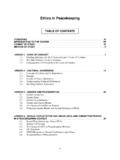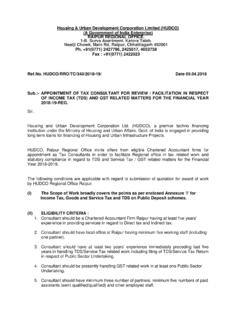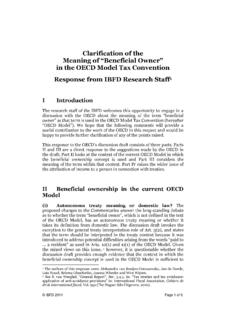Transcription of Hiroshima - eflclub.com
1 HiroshimaBy John HerseyTitle: HiroshimaAuthor: John HerseyPublisher: EFL Club ( )ContentsHiroshimaA Noiseless Flash 1 The Fire 9 Details Are Being Investigated 22 Panic Grass and Feverfew 35An Eyewitness AccountBy Father John A Siemes 49 The Atomic Bombings Of Hiroshima And NagasakiIntroduction 60 The Manhattan Project Atomic Bomb Investigating Group 60 Propaganda
2 61 Summary Of Damages And Injuries 62 Main Conclusions 63 The Selection Of The Target 64 Description Of The Cities Before The Bombings 66 The Attacks 67 General Comparison Of Hiroshima And Nagasaki 69 Description Of Damage Caused By The Atomic Explosions 70 Total Casualties 76 The Nature Of An Atomic Explosion 78 Characteristics Of The Damage Caused By The Bombs 80 Calculations Of The Peak Pressure Of The Blast Wave 81 Long Range Blast Damage 82 Ground Shock 82 Shielding.
3 Or Screening From Blast 83 Flash Burn 84 Characteristics Of The Injuries To Persons 86 Burns 86 Mechanical Injuries 87 Blast Injuries 87 Radiation Injuries 88 Shielding From Radiation 91 The Effects On The Inhabitants Of The Bombed Cities 91 Worldwide Effects Of Nuclear WarIntroduction 93 The Mechanics Of Nuclear Explosions 95 Radioactive Fallout 95 Alterations Of The Global Environment 98 Some Conclusions 101 Notes 102 QuotationsA Few Selected Quotes Of John Hersey 1051 HiroshimaBy John HerseyChapter OneA Noiseless FlashAt exactly fifteen minutes past eight in the morning, on August 6, 1945, Japanese time.
4 At the moment when the atomic bomb flashed above Hiroshima , Miss Toshiko Sasaki, a clerk in the personnel department of the East Asia Tin Works, had just sat down at her place in the plant office and was turning her head to speak to the girl at the next desk. At that same moment, Dr. Masakazu Fujii was settling down cross-legged to read the Osaka Asahi on the porch of his private hospital, overhanging one of the seven deltaic rivers which divide Hiroshima ; Mrs. Hatsuyo Nakamura, a tailor s widow, stood by the window of her kitchen, watching a neighbor tearing down his house because it lay in the path of an air-raid-defense fire lane; Father Wilhelm Kleinsorge, a German priest of the Society of Jesus, reclined in his underwear on a cot on the top floor of his order s three-story mission house, reading a Jesuit magazine, Stimmen der Zeit; Dr.
5 Terufumi Sasaki, a young member of the surgical staff of the city s large, modern Red Cross Hospital, walked along one of the hospital corridors with a blood specimen for a Wassermann test in his hand; and the Reverend Mr. Kiyoshi Tanimoto, pastor of the Hiroshima Methodist Church, paused at the door of a rich man s house in Koi, the city s western suburb, and prepared to unload a handcart full of things he had evacuated from town in fear of the massive B-29 raid which everyone expected Hiroshima to suffer. A hundred thousand people were killed by the atomic bomb, and these six were among the survivors. They still wonder why they lived when so many others died, Each of them counts many small items of chance or volition a step taken in time, a decision to go in-doors, catching one streetcar instead of the next that spared him.
6 And now each knows that in the act of survival he lived a dozen lives and saw more death than he ever thought he would see. At the time, none of them knew Reverend Mr. Tanimoto got up at five o clock that morning. He was alone in the parsonage, be-cause for some time his wife had been commuting with their year-old baby to spend nights with a friend in Ushida, a suburb to die north. Of all the important cities of Japan, only two, Kyoto and Hiroshima , had not been visited in strength by B-san, or Mr. B, as the Japanese, with a mixture of respect and unhappy familiarity, called the B-29; and Mr. Tanimoto, like all his neighbors and friends, was almost sick with anxiety. He had heard uncomfortably detailed accounts of mass raids on Kure, Iwakuni, Tokuyama, and other nearby towns; he was sure Hiroshima s turn would come soon.
7 He had slept badly the night before, because there had been several air-raid warnings. Hiroshima had been getting such warnings almost every night for weeks, for at that time the B-29s were using Lake Biwa, northeast of Hiroshima , as a rendezvous point, and no matter what city the Americans planned to hit, the Superfortresses streamed in over the coast near Hiroshima . The frequency 2of the warnings and the continued abstinence of Mr. B with respect to Hiroshima had made its citizens jittery; a rumor was going around that the Americans were saving something special for the Tanimoto is a small man, quick to talk, laugh, and cry. He wears his black hair parted in the middle and rather long; the prominence of the frontal bones just above his eyebrows and the smallness of his mustache, mouth, and chin give him a strange, old-young look, boyish and yet wise, weak and yet fiery.
8 He moves nervously and fast, but with a restraint which suggests that he is a cautious, thoughtful man. He showed, indeed, just those qualities in the uneasy days before the bomb fell. Besides having his wife spend the nights in Ushida, Mr. Tanimoto had been carrying all the portable things from his church, in the close-packed residential district called Nagaragawa, to a house that belonged to a rayon manufacturer in Koi, two miles from the center of town. The rayon man, a Mr. Matsui, had opened his then unoccupied estate to a large number of his friends and acquaintances, so that they might evacuate whatever they wished to a safe distance from the probable target area, Mr. Tanimoto had had no difficulty in moving chairs, hymnals, Bibles, altar gear, and church records by pushcart himself, but the organ console and an upright piano required some aid, A friend of his named Matsuo had, the day before, helped him get the piano out to Koij in return, he had promised this day to assist Mr Matsuo in hauling out a daughter s belongings,, That is why he had risen so early Mr.
9 Tanimoto cooked his own breakfast. He felt awfully tired. The effort of moving the piano the day before, a sleepless night, weeks of worry and unbalanced diet, the cares of his parish all combined to make him feel hardly adequate to the new day s work. There was another thing, too: Mr. Tanimoto had studied theology at Emory College, in Atlanta, Georgia; he had graduated in 1940; he spoke excellent English; he dressed in American clothes; he had corresponded with many American friends right up to die time the war began; and among a people obsessed with a fear of being spied upon perhaps almost obsessed himself he found himself growing increasingly uneasy. The police had questioned him several times, and just a few days before, he had heard that an influential acquaintance, a Mr. Tanaka, a retired officer of the Toyo Kisen Kaisha steamship line, an anti-Christian, a man famous in Hiroshima for his showy philanthropies and notorious for his personal tyrannies, had been telling people that Tanimoto should not be trusted.
10 In compensation, to show himself publicly a good Japanese, Mr. Tanimoto had taken on the chairmanship of his local tonarigumi, or Neighborhood Association, and to his other duties and concerns this position had added the business of organizing air-raid defense for about twenty families,Before six o clock that morning, Mr. Tanimoto started for Mr. Matsuo s house. There he found that their burden was to be a tansu, a large Japanese cabinet, full of clothing and household goods. The two men set out, The morning was perfectly clear and so warm that the day promised to be uncomfortable. A few minutes after they started, the air-raid siren went off a minute-long blast that warned of approaching planes but indicated to the people of Hiroshima only a slight degree of danger, since it sounded every morning at this time, when an American weather plane came over.







